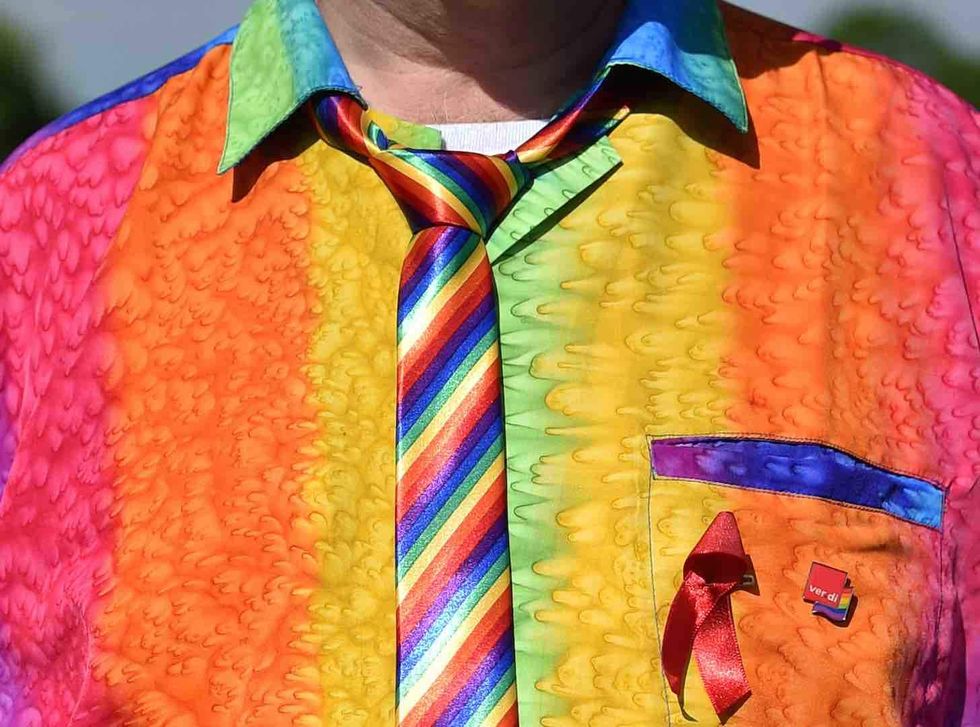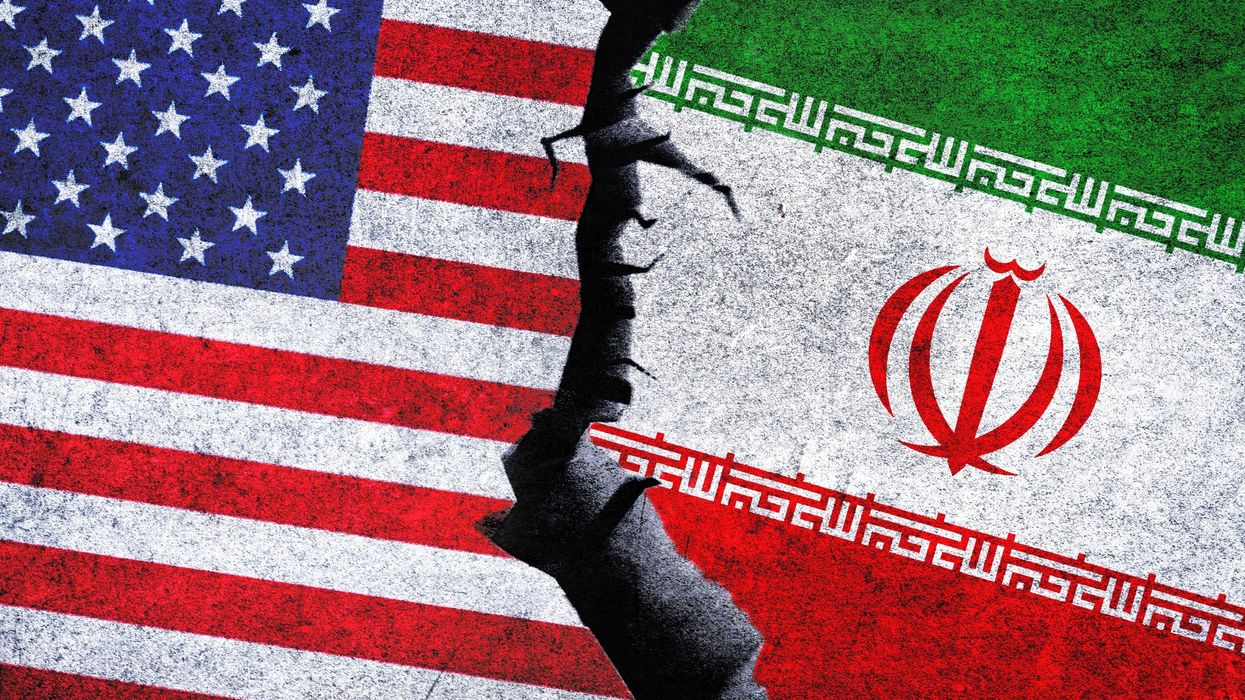A clothing company that prides itself on "questioning boundaries" is also crossing boundaries, in the opinions of many consumers and advocates.
KA Design posted a video to Facebook last month in which it announced that "the Swastika is coming back." At the beginning of the 50-second clip, the clothier shows a Swastika — but the image wasn't exactly identical to that of the Germany Nazi symbol of the 1930s.
"This is a Swastika. It's 5,000 years old. It's a symbol of peace. It's a symbol of love, luck, infinity, life. But one day, Nazism," the text in the video read. The clip then showed an image of Nazi leader Adolf Hitler, who killed millions of Jews, LGBT people and other minorities.
"They took the Swastika, rotated it by 45 degrees, and turned it into hatred, fear, war, racism, power. They stigmatized the Swastika forever."
Indeed, according to the U.S. Holocaust Memorial Museum in Washington, D.C.:
The swastika has an extensive history. It was used at least 5,000 years before Adolf Hitler designed the Nazi flag. The word swastika comes from the Sanskrit svastika, which means "good fortune” or “well-being." The motif (a hooked cross) appears to have first been used in Neolithic Eurasia, perhaps representing the movement of the sun through the sky. To this day it is a sacred symbol in Hinduism, Buddhism, Jainism, and Odinism. It is a common sight on temples or houses in India or Indonesia. Swastikas also have an ancient history in Europe, appearing on artifacts from pre-Christian European cultures.
The KA Design video said that by the Nazis claiming the symbol as its own, "they won. They limited our freedom." "Or maybe not," the clip stated.
The online clothier declared that it was reclaiming the Nazi symbol, "together with peace, love, respect [and] freedom."
The retailer then introduced a shirts and hoodies, emblazoned with rainbow-colored Swastikas above the words "peace," "zen" and "love."
A KA Design representative said that it "really like[s] the symbol in its shape and aesthetics," the gay British website Pink News reported.
"We really enjoy the swastika. Not because of any of the meanings associated with it, but because of the shape and of how it looks. However, the strong bond between the swastika and Nazi values was unbreakable. We didn’t feel free. For the right reason. So we ended up using this symbol with the aim of sharing its opposite values: love, peace and freedom," a KA Design representative told Mic.
"Our project wants to express the victory of love and humanity against hatred and Nazism in general," the representative added.
The campaign didn't come without major blowback, however, as many voiced their outrage in the Facebook comments section.
"Vile. Completely vile," one person commented.
Another individual, who identified herself as a "fellow designer," said the business "may have crossed a line here."
"I understand you had good intentions, but this is a piece of history that needs no 'Re-Branding,'" she added.
Arsen Ostrovsky, executive director of the Israeli-Jewish Congress, also voiced opposition to the provocative campaign.
“Do you not realize how obscene and offensive this is?” Ostrovsky wrote in a Facebook post on Saturday. “This is not art or free speech. It’s disgusting and deeply hurtful.”
Dvir Abramovich, chair of the Anti-defamation Commission, also spoke out against KA Design's campaign.
“I am outraged and shocked that any company would seek to profit from selling such reprehensible items," Abramovich said, according to Pink News. "The swastika does not represent the LGBTI community, whose members were the victims of Hitler’s evil regime. And no, it cannot be rebranded as a symbol of peace.
“KA’s naive, and in many ways, selfish attitude shows a staggering lack of concern for the feelings of those who survived the Holocaust and those who lost relatives to the monstrous deeds of the Third Reich," Abramovich added.
The shirts were sold on the website TeeSpring, but both TeeSpring and KA Design made clear that they are entirely separate entities. TeeSpring said that KA Design is "in no way affiliated with Teespring and does not reflect the company’s views," Pink News reported.
The TeeSpring representative said the shirts were pulled from the website "the moment Teespring was made aware of the design."
"No T-shirts were sold to consumers and Teespring did not profit from this design in any way," the representative said. “Teespring would like to apologize for this incident and is taking action to ensure this does not happen again in the future."
KA Design seemed to acknowledge in a Facebook post on Monday that its shirts were no longer for sale.
"Teespring has nothing to do with our project. It is a beautiful company with the nicest people around. Leave all the Hate to us," the post read.
In the same Facebook post, KA Design vowed to "keep fighting."
"Hatred and Nazism have won. We brought out the worst in people. We believe in a world of infinite forgiveness. We forgive everyone. And we hope to be forgiven. Let Love Prevail. Thank you. We will keep fighting," the post read.
As the Washington Post reported, it's unclear who owns KA Design or where the clothing retailer is based. The Post reported that it emailed the company, but a KA Design representative refused to disclose the information at that time, citing a "public launch very soon."
(H/T: Out)






